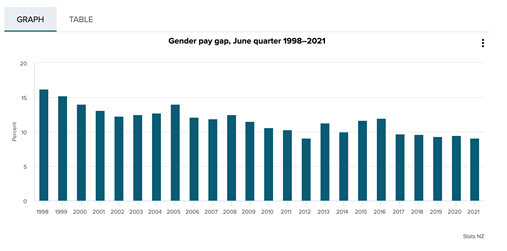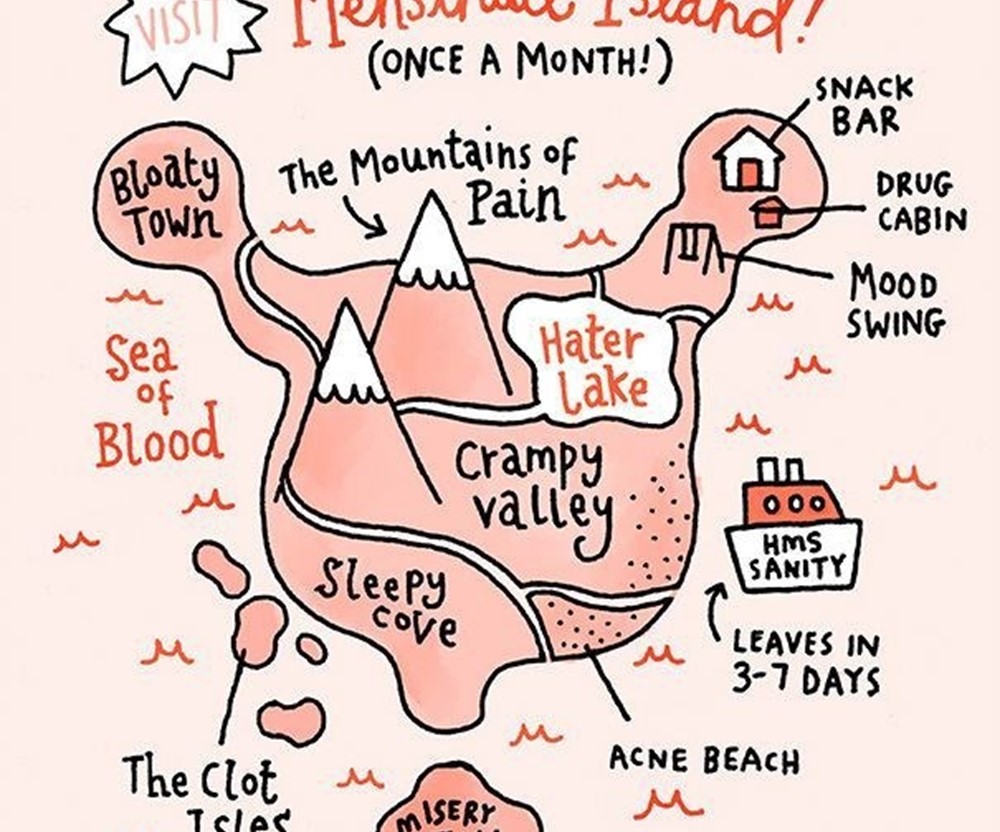
An easy way to decrease pay gaps.
What's up with Pay Transparency?
Categories
- Workplace
- Community
It has been illegal in Aotearoa New Zealand for nearly 50 years for women to be paid less than men for equal work, but considerable inequalities still exist when it comes to pay. While there’s much talk about eliminating the gender pay gap, progress has been elusive, and little has changed in the last decade - it was 10.3% in 2011 and is at 9.1% today (with fluctuations up and down on the way, see graph below). There’s one simple solution to reducing the pay gap - pay transparency, aka everyone knows what everyone gets paid for their job.
We’re taught not to talk about our salaries, especially with our co-workers - and in some organisations, employees are actively discouraged from discussing pay. There’s an understanding that our pay should be kept confidential – but the only thing this does is feed the gender and ethnic pay gaps. In order to empower employees and work towards pay equality, we need to have more transparency around pay.

How does Pay Transparency Reduce Pay Gaps?
It’s hard to know you’re being discriminated against if you have no idea what your coworkers make. The first step in taking corrective action is knowing that there’s a problem, and having hard evidence of a gap in pay is a great motivator to try to close it.
In more transparent workplaces, employers have to think quite hard about how to justify their pay determination processes for all workers. Since employers realise that they’ll likely have to justify their compensation decisions, they’re motivated to make decisions that will hold up to scrutiny.
If figures regarding pay are published outwardly, employees can very easily look up what every member of the company is earning and can take this with them when they negotiate for themselves. It also allows people from outside the company to reference what people in certain positions are being paid, for example if you hold the same position in a different company.
Women And Millennials More Likely To Discuss Pay
American research found that Millennial and Gen Z workers were nearly twice as likely as Baby Boomers to discuss pay with their coworkers. Even when employees were subject to a pay secrecy policy at work, over half of Millennials still discussed pay with coworkers, while only 26% of Baby Boomers talked compensation.
Women are more likely than their male counterparts to discuss pay with coworkers (both in workplaces with pay bans and in workplaces without), likely because they have more to gain from discussing pay. Again, learning about pay discrepancies is the first step to closing them.
It's not easy to have these conversations. There is a societal taboo on talking about the size of our paychecks. But these taboos and rules aren’t in place to help employees. Instead, not discussing compensation favours employers by letting them dodge difficult conversations about why one employee earns more than another. We need to break down these taboos and start talking about pay—it’s an easy way to start chipping away at all pay gaps today.


Pay Transparency is good for the mental health and happiness of employees
An American report found more than half (58 percent) of employees would consider switching jobs for more pay transparency, and for Gen-Z, the number jumps to 70 percent -- a clear indicator of a greater need for transparency, especially for employers hoping to attract and retain young talent.
For many of us, our jobs are linked to our self-worth, feeling productive and like we’re providing for our families, as well as the feeling of success. These feelings are somewhat diminished when a number is attached to it and this contribution is quantified in terms of money. We all like to feel like we are valuable in how we contribute and learning that our colleagues make more money that we do, even if there are valid reasons, could affect how we perform, overall job satisfaction and how we interact with those we work with.
Clear benefits of pay transparency for the mental health and overall happiness of working people include:
- Trust in your employer improves
- Morale and engagement improves
- Motivation increases - you can see the financial rewards of career progression.
- Bias within the workplace is reduced
So what are we doing in Aotearoa to gain Pay Transparency?
The Human Rights Commission has a campaign to end pay secrecy in New Zealand. They are demanding the government:
- implement a pay transparency mechanism that requires companies with 100 or more employees to report annually on their gender pay gap, their bonus gap and the gender of people at each level of their organisation. This information should be publicly available.
- set up an independent agency that oversees the pay transparency mechanism which can monitor compliance and to provide advice and support to women wishing to make an equal pay claim.
To support the HRC in this, please sign their petition here.
Last month, the YWCA launched the Mind the Gap (MTG) campaign for pay transparency underlined by the firm belief that when we know what the gaps are, we can work to close them.
This campaign is asking that mandatory pay gap reporting be required here in Aotearoa.
Read more like this




